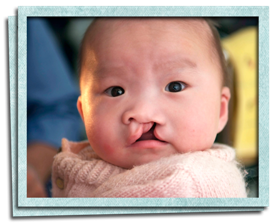
I think all of us have gotten dozens of holiday letters from our friends which extol the virtues of their beloved children: "Donny was voted most likely to succeed, won state in basketball, and scored a 1600 on his SAT....Lisa won the national junior golf title, saved an elderly lady's life, and is now fluent in four languages." Just once I would love to see a holiday letter that said, "my daughter is flunking chemistry and my son just sits around all day playing video games and eating Taco Bell." I think I would find that pretty refreshing.
I think most charities fall into this same "holiday letter" mentality, in as much as we are hesitant to ever post a mistake or say that a project isn't going well. Since all charities are run by humans, I would have to think that just about every charity learns through experience, often the hard way. But you would rarely know that from charity blogs or websites. We are just as guilty of this as everyone else, of course. Our blogs and newsletters are filled with positive success stories, which thankfully we have a lot of. But we certainly have matured our programs by learning real lessons when things didn't go as planned. For example, we recently tried a "halfway house" program for young ladies aging out of their orphanage. We renovated an apartment, hired a house mom, encouraged them in every way to live on their own.....and it didn't work. Despite our absolute best intentions and a lot of hard work....the project didn't go the way we had hoped.
So how do you feel about charities being honest in telling things like they are? Do you prefer to only know the good? Or would you want to know if you gave to a project and it didn't work out? I have often wished that some of the groups that I gave money to with little results after Hurricane Katrina would just say with complete sincerity, "we know we messed up." I think most people can understand and forgive just about anything when people are honest. Or do you think that charities need to project an always perfect image to keep their donors committed?

 Always Positive?
Always Positive?















I favor the truth. I am more willing to be a part of something that is real, as opposed to "to good to be true" stories that just don't add up. I am sorry the house for the older girls did not work. It is one of my biggest concerns. I would think that when a plan does not work, the notion is not to give up and hide, it would seem to me that an attitude of "o.k. what did we learn and how can we make it work?", is more the answer. I am betting more people would give to the cause if the truth were known.
ReplyDeleteI would prefer to see charities be honest about their projects. I think that would show their donors that the charity is trustworthy and honest. I would much rather hear from the organization that a certain project didn't work out that I donated to vs. hearing second hand. Honesty is the best policy!
ReplyDeleteJodi
I think it's a delicate balance...but honestly is always refreshing.
ReplyDeleteI am only human...only one perfect person whom I can quote something about throwing the first stone...honestly (he he..) I think we need to give people the benefit of having their own opinions and letting them make suggestions..to help us make ourselves more transparent. Children ask parents for the truth, and I feel we owe it to be honest, but respectfully submit the truth in a manner that is professional.
ReplyDeleteI think it is a delicate balance, because you want your favored charity to been seen in a good light, but also an honest light.
ReplyDeleteWhat I like to see is an honest evaluation of a program with lessons learned so to avoid repeating or perpetuating mistakes. I recently shared the changes we made for a little girl in one of LWB's programs. She was in a foster care situation that was not meeting her home needs or her special needs support. We then moved her to a residential school to support her special needs, but found her daily living was still unsatisfactory. Ultimately, we found a foster family that could give her a family and still allow her to attend the special needs school during the day. Sure, we wished she had the best care from the beginning, but the important part is that we kept re-evaluting until we found the right combination.
Let's hear it all. If anything, it may spark ideas from those outside of your organization to make it better, or to create something entirely new. Plus, it's refreshing to hear what's going on in other areas outside of what we know.
ReplyDelete